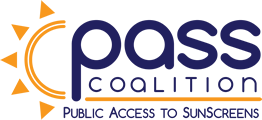Premium Beauty News — Coalition debuts campaign for approval of the latest generation of UV filters in the U.S.
Premium Beauty News
Coalition debuts campaign for approval of the latest generation of UV filters in the U.S.
March 28, 2013
A coalition of health organizations, sunscreen ingredient companies, dermatologists and concerned citizens has kicked off a campaign to speed up the Food and Drug Administration’s approval of the next generation of ultraviolet (UV) light active filters for over-the-counter (OTC) sunscreens.
The Public Access to Sunscreens (PASS) Coalition, which members include the Skin Cancer Foundation, Prevent Cancer Foundation, Melanoma Research Foundation, Dr. Fallick, Dr. Henry Lim, Dr. Nadim Shaath, Dr. Steven Wang, Dr. Warwick Morison, Beiersdorf, L’Oréal USA Products, Ashland Inc., BASF Corporation, DeWolf Chemical, Fitz Chem Corporation, and McCullough & Associates, said its intention is to work collaboratively with the FDA, the White House, Congress, health care providers, consumer organizations and sunscreen manufacturers to improve the legislative and regulatory framework for sunscreen products in the U.S.
“In 2010, new clinical research on humans showed more convincingly than ever that sunscreen helps protect against melanoma and other skin cancers,” explained Shelby Moneer, health educator at the Melanoma Research Foundation. The 2010 study found that daily sunscreen use reduced the incidence of melanoma, the deadliest form of skin cancer, by half.
“While advanced sunscreen technology is available globally, it isn’t available in the U.S,” said Al Pearce, senior marketing manager, Personal Care for BASF Corporation. “The PASS Coalition intends to play an active role in calling on lawmakers and regulators to join forces to provide the public with the most effective and innovative sunscreens available.”
According to statistics compiled by the Skin Cancer Foundation, each year there are more new cases of skin cancer than the combined frequencies of breast cancer, prostate cancer, lung cancer, and colon cancer, and according to the National Cancer Institute, the estimated total direct cost associated with the treatment of melanoma in the United States in 2010 was nearly USD 2.4 billion.
